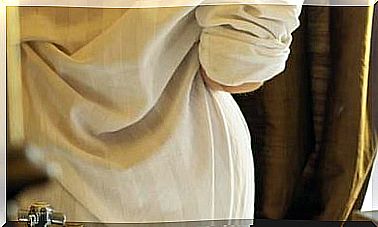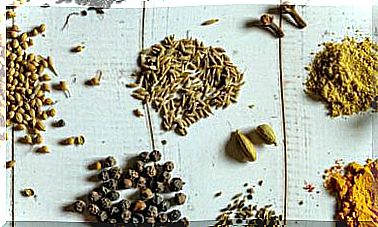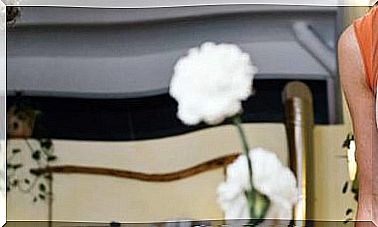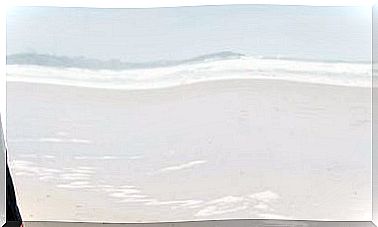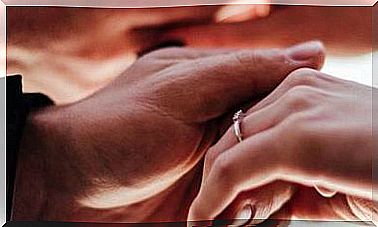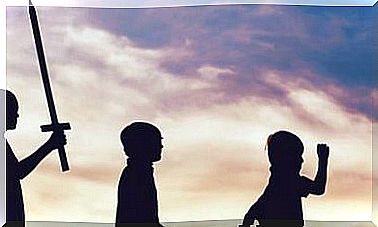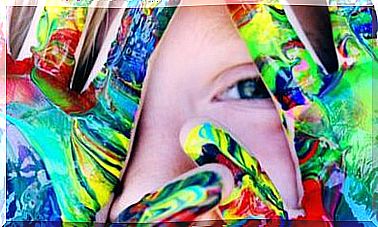“Feeling Is The Bravest Thing There Is. It Takes Guts.”
The psychologist Sergi Rufi is not the typical author who writes a self-help book to discover the keys to happiness. He goes further. His work “A REAL psychology” (Dome Books) encourages you to be yourself, to live your own life, exercise your tastes and respect your gifts and limitations.
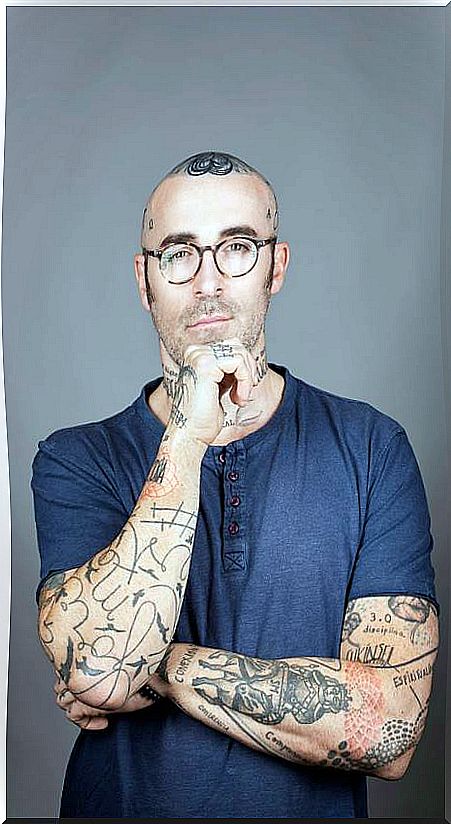
To speak of the physicist of the psychologist Sergi Rufi would be a cliché, but it is true that his image makes us suspect that he cares little about what they think of him. Or at least, that makes us believe.
However, this idea gains more force when in the first pages of his book he tells us: “Since I was a child, I have preferred to be restless in the middle of the ocean than comfortable in a fish tank.” Now we are clear: neither he nor his work pretends to be conventional. And when you mix experience, training and nonconformity the result is a REAL psychology (Rebel + Spiritual + Authentic + Free).
And you, do you dare to be yourself? I invite you to read this interview and his book A REAL Psychology (Dome Books) so that you discover that the answer to this recurring question you have not read before.
– I see you and I would not say that you are a psychologist. Is it the same thing your clients tell you when they see you for the first time?
–That was more at the beginning. Now they know who I am and if not I tell them to first look at my website. I prefer. I do not identify with a traditional psychologist or 1.0. And yes, they have told me that I look like an artist, musician, designer, tattoo artist …
– If your appearance is not conventional, I dare say that your methodology is not either. What is the REAL psychology to which you have dedicated your book based?
–For my second book I created an acronym, REAL, which meant Rebel + Spiritual + Authentic + Free. All these concepts revolve around being authentic, saying what you think, showing what you feel, exposing your needs, but always taking care of the bond, taking care of the other, not just letting go of everything. For me that is not authenticity but rudeness.
And as for the method, it is the Rufismo (laughs). Now seriously, it consists of unlearning those cultural messages of psychology 1.0 that silently blame us: “If you are not happy, it is because you do not think well”, “relax”, “do not scratch yourself”. All those patronizing imperatives. And at the same time, it is based on relearning to know ourselves a little from our own originality.
That is, to realize that perhaps we are not as bad as they tell us, and that our pain has more to do with the fact that we do not relate to our mind in a human way or do not understand how we work. It has to do with how they have told us that we are (and in reality, we are not), which is based on an interpretation that is too superficial, biased, hyperrational, basic and 1.0 … It is important to relearn how to relate to ourselves in order to live better with ourselves.
“You say you are a rebel with a cause.” Can you explain what it is?
-It means to point out a little bit that corruption of the Machine as a system in which we live. And with the Machine I mean the official system, the messages so typical of ‘those who know’, the clichés. And in the case of official psychology and Disney spirituality, to the messages of “you can and you must control your mind”, “everything is great”, “you have to be happy”, “don’t let a day go by without smiling” …
All these scrolls are presenting a goal-solution-relief, which in the medium term is going to be another problem that we are going to have to solve because they cannot be achieved or maintained.
We can’t be great all day.
Life includes complicated moments, difficulties in living with people, with friends, with our parents … So I would say that it is a revolution against the road map that they have sold us. The one of “you have to do this and that”, “you have to be like that”, “you have to and you have to” No! In general, you are as you are, period.
– That critical spirit that seems to characterize you after reading your work, is it just what our society lacks?
–He lacks both a critical spirit and understanding and affection. The feminine and masculine part (yin and yang). Now the idea that “criticism is lacking, critical thinking” is fashionable … And it ends up being very theoretical-philosophical, and I love the philosophical, but the truth is that it doesn’t unblock us emotionally, I’m sorry. I say this in the book, I put a bit of cane to philosophy as psychological therapy.
I’m fed up with emotional rationalization-reconstruction, 1.0 psychology, the conventional one, the one that says that I’m fine and you are wrong, that of “this is what you have to do” hurts people. They separate us more from each other, and all that is separation is constantly replicating the wound of humanity.
– I was surprised that you say that it is good for the client to know aspects of the inner path of the therapist.
–In the most humanized world, in the most REAL psychology, the accompaniment of the other is used. A therapist did it to me, one of my great teachers, 10 years ago. He shared personal things with me and I thought: “How useful that is to me. I’m not that far from him, from my goal of feeling good, because I’m not really that bad, it’s more normal than I thought ”.
And it is that, if that man whom I admired and saw so well, he also stumbled over the same stone as me, because it was that I was not so bad. And in reality it does not apply so much because there are no guts, they are afraid that that way they will be seen as someone common, that they will not idolize them and that they will not return.
–The media tell us how to think, songs how to feel… Do we live immersed in a great lie where we believe we are masters of our life and we are just puppets of a society, a culture…?
– Yes, but at the same time it is a logical process, it is not possible to socialize, educate, without selling us a standard model. Humanity is like that, and mythology has always been like that, they have sold us stories that we confuse with facts to make us understand the ultimate reality: where we come from, where we are going … But they are stories, they are not the truth, they are not the concrete facts . So, we live tight in a poetry, on a map.
The issue is to be able to affirm it: “This is one option, there are others.”
– Are social networks the queens of this farce?
–It begins as a reflection, a consequence of the farce, and ends up being the hammer itself that generates the farce. In addition, with the culture of the selfie , which again promotes the separation wound; I put myself above, you are below, you need me, but at the same time I depend on you and your likes ; and the one-sided coin: I am always cheerful and happy and I create the false expectation that it is possible to live like this … Once again we are pouring comparison, envy, shame and blame on others.
– Taking into account this context, is it possible to be yourself?
–If it is possible, yes, but we cannot forget that we are a socio-cultural product. Music, songs, movies, advertisements, and therefore desires, expectations, fears … are common to all. In addition, we have a background in which we need the same: empathy, understanding, affection, bond, support … However, I can be myself from daring to do what I feel I should do and decide to show myself from what I feel, from sharing my preferences, my personal tastes different from those of my group … That part of us that distinguishes us can be activated more. For example, if I don’t like tiramisu, I’m not going to eat it because the whole restaurant is eating it or is in fashion.
That means exercising the right to be yourself. To be able to distance myself from the opinion of the majority and to position myself politely.
And I would like this not to be confused with that of “you have to live from the heart” and those things that are heard so much, because they are very beautiful words, but what do they mean? Emotions come and go. Also, I will never tell a client who has a serious conflict with the boss: “Do that …”. No, I will ask you to explain the context to me, to give me details, I will need to know your way of being, your previous conflicts in that area, your vital moment, etc. If I can inspire, I inspire, but I’m not going to push anyone to live my life. I invite you to be yourself and live your own life, to exercise your tastes, to respect your gifts and limitations. And above all, without adding struggle, little by little.
“But then, do we do what the mind tells us?” Because for me it is the mind that lies to us, the one that is dominated by the messages of the Machine that you say…
–Depending on the context, we are going to live more from the mind or from the heart. It is true that at first the mind tends to be the voice of the system, the one that repeats to us what we have to do, and that the heart popularly represents what we want, but, for example, at work we will still have to use the mind, while at leisure we can let ourselves be carried more by the heart.
In any case, there is something more powerful, something more stable – since ideas and sensations come and go – that we can call life, values, personal truth, which does not change that much. For example, there will be times when we have to speak directly, and we will, but if empathy or compassion are important to us, we will do so to a degree that is as closely connected as we can to those values. We will try not to be too rough with the other person, because we feel it too. Deep down, we are things more stable than a mere thought or an emotion.
“Speaking of brusqueness, is the truth overrated?”
-Totally. To begin with, I still don’t know what the truth is. Sometimes I know what my truth is, and other times I realize that it is just another opinion. The same thing happens with good and evil, I am not entirely clear what is right and what is wrong on a psychological level. There are objectively destructive acts where things are suddenly rearranged and one moves towards something edifying.
– Why do people always need to fit in?
-Because we are human beings, part of the animal kingdom and to survive we need belonging, connection, group, security … We need it to be able to dissolve, even occasionally, that line of separation between you and me. We only prosper together.
–In the book you explain how you felt different as a child. Do you remember any thoughts you had then while observing your surroundings or relating to others?
–Many, and all of the same wave: “why?”, “I don’t understand it”, “I don’t agree”, “what inconsistency”, “they always punish me”, “I haven’t done anything” … I looked like the bullseye.
– Were there any words or gestures that you received from an adult in those early years that marked you especially?
“So many that I could make a book out of it.” From my father to teachers, especially teachers. In the kindergarten notes they already said that he was abusing trust. Would you say that of a four year old?
I also remember, at the age of nine, the figure of Don Juan, a sadistic and psychopathic teacher. It marked my life. It crushed me a lot. “Don’t be like him !! Don’t follow him !! Don’t do what he does ”, he said in front of the whole class, grabbing me by the ear, by the hair, ridiculing me, hitting me …
That hurt me a lot on a psychological level. Many complexes, a lot of insecurity, a lot of loss of confidence in me was born there. If being who I was was not an option to survive and I couldn’t be who I was, who was I? The abuse of power generates that.
–How do labels affect us? Those of our parents, teachers …
–They affect us a lot. Those are you: “you are lazy”, “you are stupid”, “you are a disaster” … You are, you are, you are … All that recrimination creates a sick identity for us.
There is nothing more toxic than an ERES. Don’t tell me that, I am more than those YOU ARE.
– No one escapes from a wounded inner child?
“Not really, it’s part of the human being.” To deactivate our animal impulse to do what we want and thus be able to coexist in society, they separate us from our individual impulse and our own movement, they put rules on us and make us feel ashamed of our impulse, of our personal motivation … This is how we become in separated, embarrassed adolescents, and in separated adults and injured human beings.
– What are the keys to cure it?
–Unlearn the 1.0 cultural messages of the Machine, try to dissolve the biographical shame and guilt, relearn ourselves from a deeper and REAL information, work on the acceptance of who I am and flow a little more with life and practice caring for ourselves and towards people.
– What does it feel like when you’re cured?
–I use this phrase in my book but, as I reflect more, it doesn’t quite convince me because it re-pathologizes me (is there something to cure?). I know what it is like to be better with myself, to have no guilt or shame for the past, to live better with me, to feel more meaning and more affection towards me. And that is incredible, because for me it is all we can do as human beings.
– Does this healing process ever end?
–The process of unlearning and relearning lasts as long as we are still alive, since we are going to have conflicts, so it will last a lifetime but, obviously, the degree of suffering we add can be improved. Life is made to learn to live in a kinder way, to handle ourselves in a less reactive and more organic way.
– Would you say that feeling is brave?
– It should be that no but it seems to be that it is due to the fashion of the social militarization of which I speak in the book. All that Americanization (mechanization of the human being) of “run!”, “Do!”, “You are a warrior!”, “Try harder!”, “The mind is your enemy!” …
All that warlike stuff that they are putting us makes the feeling look like something weak, when in reality feeling is the bravest thing there is, it means opening ourselves to what is pleasant and what is not so much. It requires guts.
– Why is sensitivity culturally associated with fragility?
– You have said it, it is the cultural message, the anthem of social militarization. We must all be compulsive doers and be on the warpath against our emotionality.
This generates more anxiety and to free ourselves from that tension, more need to do and achieve … This flight forward through short-term productivity makes us feel more materially dependent and fragile in the medium term.
– Anger, fear, sadness … are considered negative emotions. Are they really?
– Negative is a moral value that arises from a cultural preference, and on a psychological level morality hurts us. We are separating ourselves from something internal over which we have little control and, thus shaming ourselves, and, therefore, creating more separation wound: “I don’t hurt because I feel sad.”
Certainly, there are emotions that we do not like to feel so much because we experience them unpleasant, uncomfortable, because they hurt … but there is no evil or negativity inherent in them. Enough moralizing.
–We apologize for crying, there are those who claim not to know how to do it… Are we obliged to be happy?
–To begin with, not knowing how to cry is like not knowing how to think or not knowing how to speak, it is a disability. But where we are going, yes, the Machine presses us to be happy, not complain and go smiling to the slaughterhouse. The slaughterhouse is the cultural entrapment: work-home, home-work … Everything well packaged and fast. And why slaughterhouse? Because it ends up killing us creativity, illusion, spontaneity, life …
–However, you are not talking about happiness but about well-being…
–I am not talking about happiness because that term has been prostituted a lot, there has been too much trade with it and, deep down, they end up being titles, headlines, hashtags, words, language … And therefore behind there is the ideology of trending topics, interests and corruption to control us: “Be happy in five minutes”, “do not forget to smile seven times a day” … Again the false coin of a single side. I don’t know what happiness is, well-being does. Right now I feel good. I can measure that, although I know it will happen.
– Is it impossible to dissociate well-being from suffering?
– I think that one thing includes the other, after one comes the other to a greater or lesser degree. Everything is part of the human being, being well all day is a utopia. Yes, there is a primary pain: “This hurts me.” And a secondary pain: “I don’t want this to hurt.” When I don’t want something to hurt me and it is already hurting, there has already been something psychological about trying to control not feeling that, and more suffering is added.
That suffering that culture 1.0 and the Machine constantly promotes from the “You shouldn’t be feeling that.” It is true that trying to control is a natural gesture, it is hyper-control or the will to control everything, which becomes harmful.
– Is the secret of happiness to accept yourself?
–Acceptance is another term that is used so easily…: “Accept it”, “let it go”, “let it go”… What is that? If it demands haste it cannot be true. Accepting yourself is a journey that lasts a lifetime. Maybe in 5 or 10 years we will be more in acceptance mode than now, but accepting everything … I’m not sure. My nervous system does not accept everything in the same degree, it has preferences. So you have to see how it is simplified with the word acceptance.
There are things that I cannot accept today. Accepting is a process of realizing that the only sustainable way in the medium term is coexistence and cooperation with what I do not agree or do not like. It occurs both on a psychological level with oneself, and on a macro level, such as geopolitics. The path is identical, it is necessary to agree and find agreements with myself and with the other for a better common coexistence. It is the same and the only thing that works in the medium term.
What do you think would happen if all people indulged the needs of the inner child?
– That is not possible, to be a civilized being we must learn to stop the impulse and we end up repressing (hurting ourselves). In addition, it is known that the human tendency to manipulation is innate. So, there is no perfect island, Eden, El Dorado … As long as we are alive we will enter into conflict.
The issue is: am I going to try to live the conflict as kindly and lovingly as possible with myself and with the other? Am I going to get into that conflict and mess it up more? Or am I going to try not to conflict and avoid it all the time? Those are the options. In the first there is more calm and depth in the medium and long term. Although the three of them are going to coexist, we are human. Hopefully one day we allow it, be who we really are and leave ourselves alone. We are not robots.
If you have been interested in this interview …
- You can buy the book A REAL psychology (Dome Books) by Sergi Rufi here.

